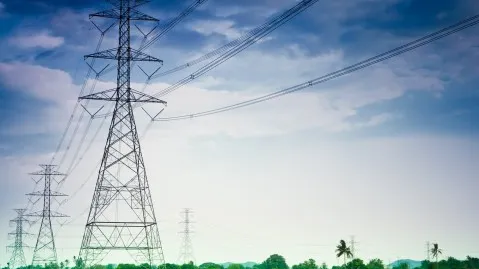
Three key areas to prioritise to enhance energy systems
The highly complex energy transition carries significant uncertainties.
Energy systems need to evolve to accommodate low-carbon energy sources deployed at scale, but this will entail improvements in three key areas including the role of governments in the value chain, review of existing mechanisms, and rethinking consumption and managing demand.
In his speech at the Singapore International Energy Week, Minister of Trade and Industry Gan Kim Yong said governments need to be active in planning, coordinating, and facilitating investments as energy transition is a “highly complex process with significant uncertainties.”
ALSO READ: Singapore to launch programme to reduce power consumption in households
There has to be a whole-of-system approach wherein long-term perspectives and careful staging implementation of new sources are considered.
“However, this does not mean that the private sector can take a step back. The private sector plays a key role in driving innovation and spearheading technological developments in low-carbon alternatives,” Gan said.
The minister added that it is also important for regulators to review the existing market mechanisms to ensure a commercial-sensible decarbonisation pathway.
Low-carbon technologies are more expensive than gas-fired turbines in the country, which could lead to significant investment risks. He added that some renewable energy imports need heavy investments but have little operating costs, whilst hydrogen’s cost is quite similar to natural gas.
“Given this, we will need to review market mechanisms to provide investors with sufficient visibility and certainty, while ensuring that competition remains effective and fit for purpose,” Gan said.
“Many regulators are grappling with similar issues. Some have introduced capacity payments mechanisms or revenue support schemes to de-risk investments. Others are contemplating even more fundamental changes to the design of their wholesale energy market,” he added.
Electricity consumption and managing demand will also play a crucial role in the energy transition. He said this could be done by encouraging businesses and individuals to be efficient, reduce consumption, and use green energy.
Some of the related policies the governments imposed include right pricing, with Singapore, not providing subsidies to electricity to incentivize households and businesses that consume power responsibly.
Imposing a carbon tax will also drive consumers to watch out for their carbon emissions. Singapore is increasing its carbon tax to S$25 per tonne of carbon dioxide equivalent next year from the current S$5, and to around S$50 to S$80 per tonne by 2030.
“As we decarbonise our energy system, we must bear in mind that it will not be without cost. For example, importing renewable energy over long distances increases the cost of electricity,” he said.
“Our approach is to retain the right price signals for the economy as a whole, while also extending help to those who need it. In this way, not only will we build a low-carbon energy system, but also an accessible and affordable one,” he added.






![Cross Domain [Manu + SBR + ABF + ABR + FMCG + HBR + ]](https://cmg-qa.s3.ap-southeast-1.amazonaws.com/s3fs-public/styles/exclusive_featured_article/public/2025-01/earth-3537401_1920_4.jpg.webp?itok=WaRpTJwE)
![Cross Domain [SBR + ABR]](https://cmg-qa.s3.ap-southeast-1.amazonaws.com/s3fs-public/styles/exclusive_featured_article/public/2025-01/pexels-jahoo-867092-2_1.jpg.webp?itok=o7MUL1oO)









 Advertise
Advertise


